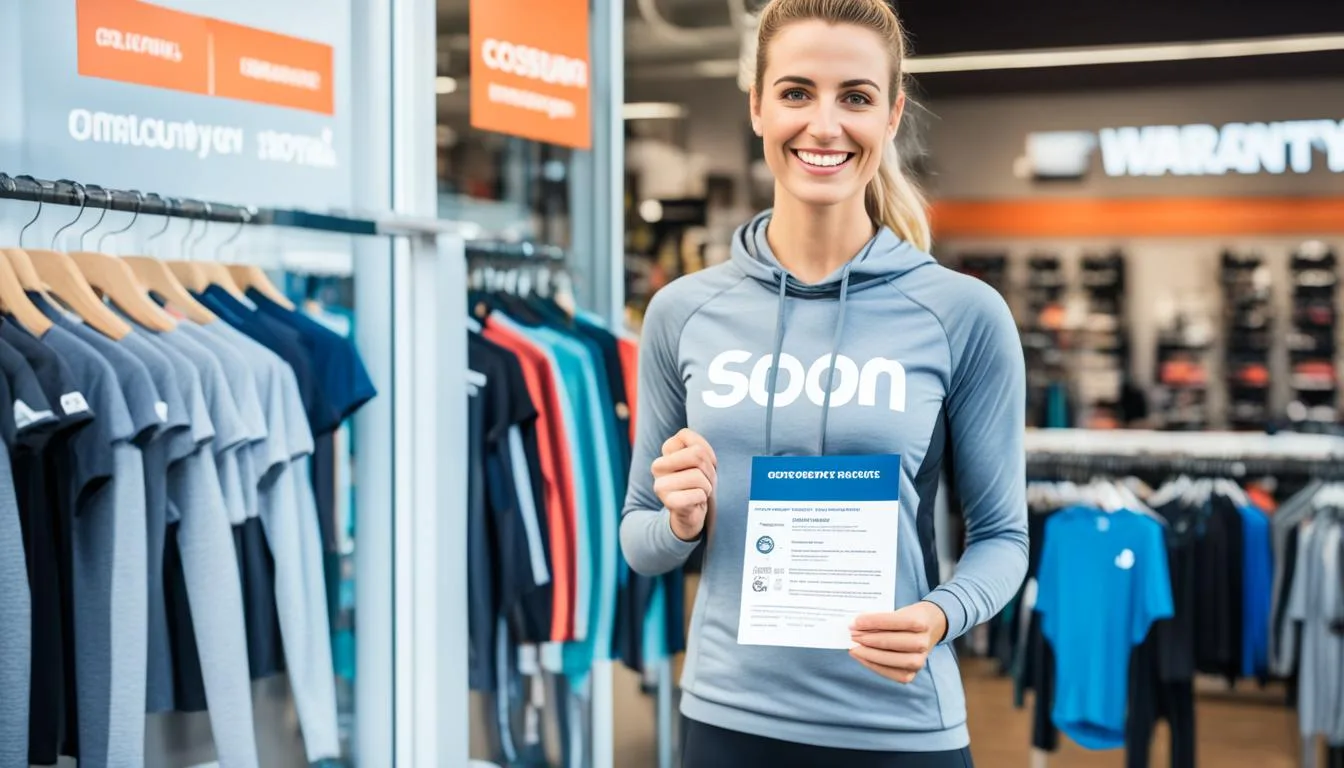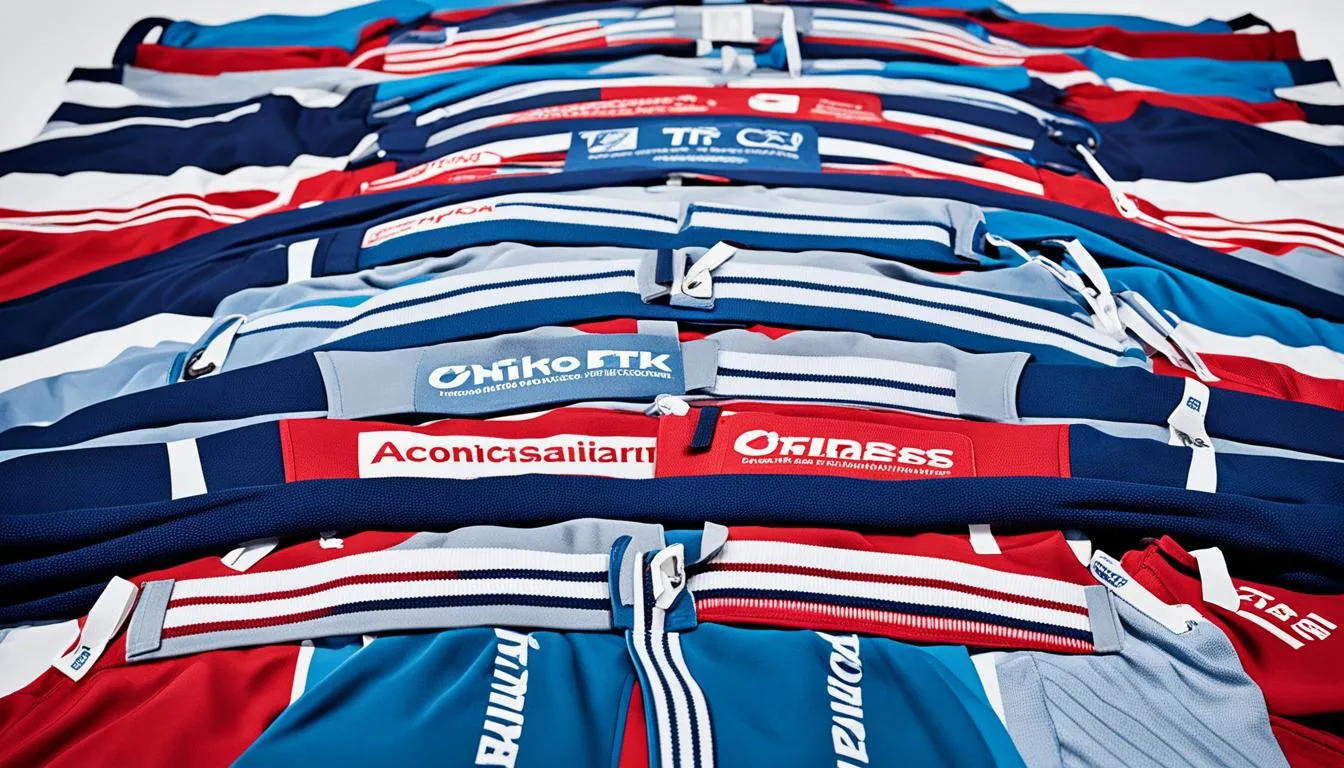Ensuring Ethical Sourcing with Compliance Certificates
Connect With Us Today
Consider us for your next production run. Why wait? Send us your questions here.
Businesses around the world are working hard to follow the best sustainability and ethical sourcing standards. They are doing this by getting compliance certificates, which help show how transparent their supply chain is. Companies like Société des Produits Nestlé S.A. are leading the way by being very strict about how they source their products. They make sure that everyone benefits – from the people buying their products to those living in the sourcing areas. In 2024, they started following the Nestlé Responsible Sourcing Core Requirements1.
Compliance certificates do more than just help the environment. They also create a system for ethical certifications that meet global standards, such as the UN Guiding Principles on Business and Human Rights1. These rules have special checks to make sure companies are doing things right. They help create a world where ethical certifications are vital for businesses today.
Key Takeaways
- Compliance certificates are key to making sure ethical sourcing and sustainable harvesting happen.
- Following UN and OECD rules can really help with responsible sourcing and making things more transparent1.
- To meet high standards, companies do lots of checks on their suppliers to protect human rights1.
- When a company gets a certain certification, it shows they really care about being sustainable and ethical1.
- Customers want to see real proof of ethical practices, which pushes brands to get the right certifications.
- Buying from countries with low risks might avoid some checks, but being truly ethical means keeping high standards everywhere1.
The Imperative of Ethical Sourcing in Today’s Global Economy
The global economy moves fast, making ethical sourcing vital. Businesses need to be clear and responsible about where they get their supplies. This is because people care about these things and everything in the world is connected.
Building Brand Value Through Ethical Practices
Now, being a valuable brand isn’t just about money or how big you are. It’s also about being committed to getting supplies the right way. A lot of people, 81% in a survey, think ethical practices are super important2. The COVID-19 pandemic made 20% of people really think about the impact of what they buy2. Brands like Patagonia and Adidas are doing great by using organic cotton, buying fair-trade, and making sure no kids are working in bad conditions2.
Mapping the Risks: The Threat to Reputation and Operations
Being unethical is risky and can hurt a brand’s reputation fast. People are watching and will call out bad behavior. About 70% of people say there should be rules to make sourcing more responsible2. If companies don’t listen, they might get in trouble with laws like the Modern Slavery Act in both the U.S. and U.K.2.
Regulatory Trends Highlighting Transparency and Accountability
The rules are getting tougher, making companies act more openly and responsibly. The Federal Acquisition Regulatory Council is leading this change. They want government spending to go to ethical companies3. They’ve made guides on things like buying sustainably and checking how contractors do3.
The Underlying Link Between Ethical Sourcing and Sustainability
Sustainability is at the heart of ethical sourcing. It looks at the impact of products from start to finish4. It aims to protect both the planet and people over the long term. By buying carefully, companies can avoid big problems like modern slavery4. It’s crucial for all industries to work together with their suppliers to improve ethics. This makes the economy more sustainable as a whole4.
Challenges in Achieving Ethical Supply Chain Practices
Companies around the world see the value in ethical supply chains. But, they face big challenges. Understanding these obstacles helps firms get ready and plan ways to be responsible in business.
Deciphering the Complexity of Multi-tiered Supply Networks
Navigating the intricate web of suppliers and sub-suppliers is tough. Ensuring everyone is accountable and transparent is tricky. It’s hard to know where materials come from, if workers are treated well, and if everyone meets ethical standards.
Ethical audits help sort out these complex layers and confirm everyone sticks to the rules5. Technology like blockchain and AI is key in making things clear and keeping track of it all6.
Striking a Balance: Ethical Initiatives Versus Cost Implications
Adding ethics into the supply chain can seem costly. The old way of thinking says being ethical hurts profits. But, consumer desires are changing. They like products that are sustainable and ethically made, which can actually boost a company’s image and profits56.
Many in the industry get the importance of ethics, but some still see it as expensive7. Companies need to show that being ethical can also mean being economical, especially to attract the 78% of shoppers who care about sustainability5. With CSR groups in many firms, it proves you can be ethical and still control costs7.
| Statistic | Relevance to Ethical Supply Chain Practices |
|---|---|
| 83% importance of ethics in supply chains7 | Indicates that ethical considerations are a priority for supply chain professionals |
| 78% consumers value sustainability5 | Reflects consumer demand for ethical and sustainable products |
| 94% need for an ethical supply chain plan7 | Illustrates organizational recognition of the necessity for ethical practices |
| 46% associate ethical supply with cost increase7 | Highlights the challenge in adapting ethical practices within cost constraints |
| 30% more likely to attract consumers with ESG commitment5 | Shows the business advantage of prioritizing ethical supply chain management |
Strategies to Enhance Ethical Procurement and Sourcing
Nowadays, people care more about where their products come from. This makes ethical procurement and ethical sourcing not just good deeds, but smart business moves too. About 88% of shoppers worldwide prefer buying from brands known for being ethical8. Plus, 83% would pay more for products that are ethically made8. This shows how important it is for companies to focus on ethical and sustainable procurement policies.
To make sure supply chains are ethical, companies can do supplier audits. These audits check if suppliers follow work laws, care for the environment, and stick to ethical rules. Having certifications like SA8000 and ISO 26000 shows a company really cares about being ethical9.
Talking directly and working together with suppliers, especially in China, is crucial. It helps set and keep ethical and sustainable standards9.
Being open about where materials come from and how things are made is also important. More companies are sharing this info to meet laws and gain customer trust. This transparency helps protect a brand’s value92.
As ethical sourcing changes, keeping up and working with auditing groups is key9. These groups have deep knowledge about ethics and can make sure companies are making the right ethical choices.
- Enhance procurement policies to integrate ethical considerations.
- Implement supplier audits to review compliance with ethical standards.
- Adopt technology to promote transparency and traceability in supply chains.
- Invest in capacity building through training and educational resources.
- Initiate direct communication with suppliers to discuss ethical guidelines.
Taking steps to educate and share resources with suppliers is crucial for ethical standards. Giving them the tools and knowledge for ethical practices can reduce supply chain costs by 9% to 16%. It could also increase sales of responsible products by up to 20%8.
| Strategy | Benefits | Key Consideration |
|---|---|---|
| Supplier Audits | Ensures compliance, identifies risks | Frequency and depth of audit |
| Transparency | Builds consumer trust, brand value | Extent of supply chain disclosure |
| Collaboration | Promotes shared values, continuous improvement | Level of supplier engagement |
| Capacity Building | Empowers suppliers, improves quality | Resources invested in education |
| Policy Enhancement | Ensures long-term ethical commitment | Alignment with corporate strategy |
Ensuring Ethical Sourcing with Compliance Certificates
Compliance certificates are key for keeping supply chains ethical. They show an organization’s promise to act responsibly. This includes respecting ethical sourcing at all levels.

The Role of Compliance Certificates in Verifying Supply Chain Integrity
Certificates show a company follows ethical sourcing rules. Hasbro uses a Factory Rating System to check on factories. This system tests how well they stick to ethical standards10.
These efforts are backed by strict guidelines and surprise checks. This ensures they keep their promises10.
Recognized Standards and Certificates: Beyond the Basics
Being ethical means more than just doing the basics. Hasbro’s system, set in 2019, helps factories improve continually10. At the same time, Unilever focuses on sourcing materials sustainably. They’ve hit big goals in sustainable sourcing for 202311.
- Ethical Sourcing Academy completion by all third-party factory management10
- Unilever’s direct packaging materials sourced from recycled fiber or certified forests11
| Initiative | Description | Impact |
|---|---|---|
| Factory Performance Tracking | Hasbro categorizes factory performance to encourage ongoing ethical improvements10. | Scores based on ethical sourcing performance |
| Hasbro Ethical Sourcing Academy | Mandatory 30-hour e-learning course for factory management10. | Ensures compliance with ethical standards |
| Conflict-Free Sourcing | Hasbro strives for the ethically sourced procurement of minerals such as tin and gold10. | Minimizes funding of armed conflicts |
| Regenerative Agriculture | Knorr’s goal for sourcing 80% of its key raw materials through regenerative farming11. | Better environmental and social outcomes |
This shows how certifications link legal compliance with ethical leadership. Companies not only meet their duties but also gain customer trust. People want to know more about where their products come from.
Driving Accountability Through Supplier Audits and Certifications
In today’s supply chain management, keeping everyone responsible is super important. RBA members aim to meet ethical standards. They follow the RBA Code of Conduct based on their membership level12. Audits help check how supply partners operate. They find problems and help make things better.
Having supplier certifications is also key. They show a business follows good practices. For RBA members, it means their whole supply chain must be ethical, including the companies they work with12. This strengthens the whole chain and encourages responsible actions everywhere.
Being open about supplier relationships is crucial. It’s the foundation of a trustworthy supply chain. By doing thorough audits and fixing issues, members show they stick to their standards12. Transparency leads to better supply chains.
Transparency comes from investigating and acting on any problems. This keeps the supply chain honest and strong12.
True dedication to ethical sourcing is ongoing. RBA members are actively improving. They use special assessments and engage in RBA activities for betterment12. The RBA also offers resources to help members avoid negative impacts. This shows a deep care for everyone involved12.
Regular audits and certifications are key to keeping supply chains ethical and responsible. These practices show commitment to doing the right thing. They prove a company’s integrity and dedication to community and environmental well-being.
Adopting Transparent and Traceable Supply Chain Practices
Today’s shoppers demand transparent and traceable practices more than ever. A 2022 survey found over half think environmental sustainability is more important than before13. They want to know where their products come from. Nearly half are ready to spend more on items known for being sustainable or socially responsible13.
Blockchain Technology: A Game-Changer for Supply Chain Visibility
Blockchain is changing the game for supply chain visibility. It lets companies see every part of their supply chain, from the first to the second tier suppliers and beyond13. This ensures products are made ethically. Plus, it helps find where to improve or spot risks13.

Supplier Collaboration to Ensure Compliance and Transparency
Working closely with suppliers is key for transparency. Companies set up training on ethical sourcing and compliance13. They also share supply chain info on labels and online. This makes their practices clear to customers13.
BSR’s 250 member companies aim to make sustainability central to business14. But few products can be tracked for sustainability. The UN Global Compact’s 8,000 members also push for sustainable supply chains14.
Traceability is “the ability to identify and trace the history, distribution, location, and application of products, parts, and materials to ensure the reliability of sustainability claims.”
Tools like AI help companies quickly adjust to supply chain issues13. They are encouraged to share their best practices. This helps make transparency a shared goal across industries. Together, they work towards a common approach to sustainable supply chain management14.
| Element of Supply Chain Transparency | Technological Enabler | Key Benefit |
|---|---|---|
| Mapping of Direct and Indirect Suppliers | Blockchain Technology | Enhanced Product Origin Tracing |
| Supply Chain Data Analysis | AI and Machine Learning | Operational Efficiency and Risk Management |
| Public Disclosure | Digital Communication Platforms | Consumer Trust and Brand Transparency |
| Real-time Adaptability | Sensors and Real-time Data Analytics | Quick Response to Disruptions |
Transparent supply chain practices, supported by technologies like blockchain, build traceable supply chains. They meet ethical needs and help in achieving a sustainable global goal1314.
Fostering Sustainability with Certified Responsible Sourcing
To create a greener future, adopting strict standards like the SA8000 and ISO 45001 is essential. These standards help companies focus on sustainability and ethical sourcing. By following these certifications, businesses can show they care about social accountability and the health and safety of their workers.
SA8000: Demonstrating Commitment to Social Accountability
Getting the SA8000 certification shows a company’s deep commitment to treating workers well. This standard ensures people work in safe and respectful conditions. Companies that follow SA8000 not only protect their employees’ rights but also boost their own reputation, showing they’re sustainability leaders.
ISO 45001: Elevating Workplace Health & Safety
ISO 45001 sets tough guidelines for managing health and safety at work. Adopting it proves a company looks out for its employees, reducing the risk of injuries. Using ISO 45001 for certified sourcing shows the company’s long-term commitment to its workers and sustainable practices.
Today, being mindful of the environment is key, and FSC forest management certification from SGS helps businesses stand out in global timber markets15. FSC-certified timber is known for meeting high social, economic, and environmental standards. This not only benefits sales but also shows a brand’s true commitment, building trust with consumers and strengthening relationships with stakeholders15.
SGS offers tailored services from its global network of 2,600 offices and labs, with about 99,600 employees15. These services make responsible land use and biodiversity conservation through FSC certification easier15. SGS’s global reach is crucial for creating smooth certification processes and fostering sustainable partnerships with eco-aware customers15.
Find out more about responsible sourcing and the importance of FSC forest management certification for ecological and corporate sustainability. Click here for more insights: FSC forest management certification.
| Standard | Focus Area | Benefit |
|---|---|---|
| SA8000 | Social Accountability | Enhances brand reputation, worker treatment |
| ISO 45001 | Workplace Health & Safety | Reduces workplace risks, promotes employee well-being |
| FSC Certification | Environmental & Social Standards in Forest Management | Attracts eco-conscious consumers, solidifies stakeholder trust |
Conclusion
Ethical sourcing is key to creating sustainable supply chains. Unilever’s effort in sustainably sourcing 79% of its agricultural materials shows commitment. They also ensure 98% of their paper and board packaging comes from recycled or sustainably managed forests in 202311.
These achievements reflect Unilever’s dedication to the environment and fair labor worldwide.
Unilever’s goal to use 100% sustainably sourced soybean oil in 202311 highlights their progress. Working with 500 suppliers and 50,000 farmers, they promote ethical practices11. Unilever is leading the way for others by adhering to its Regenerative Agriculture Principles and Sustainable Agriculture Code.
The Responsible Partner Policy with its 17 principles highlights the importance of ethics in partnerships11. Compliance certificates are more than awards; they’re a pledge to sustainability and ethics. Unilever aims to source 80% of Knorr’s key materials through regenerative agriculture in five years, enhancing supply chain strength and benefiting the planet11.
FAQ
What is the importance of ethical sourcing and compliance certificates?
What are the risks associated with unethical sourcing?
What regulatory trends highlight the need for supply chain transparency and accountability?
How does ethical sourcing contribute to sustainability?
What are the challenges in achieving ethical supply chain practices?
What strategies can companies employ to enhance ethical procurement and sourcing?
What is the role of compliance certificates in ensuring ethical sourcing?
What recognized standards and certifications go beyond the basics in ethical sourcing?
How can accountability in ethical sourcing be driven through supplier audits and certifications?
How can transparent and traceable supply chain practices be adopted?
How can sustainability be fostered through certified responsible sourcing?
Source Links
- https://www.nestle.com/sites/default/files/asset-library/documents/library/documents/suppliers/nestle-responsible-sourcing-standard-english.pdf
- https://clarkstonconsulting.com/insights/importance-of-ethical-sourcing/
- https://www.whitehouse.gov/omb/management/office-federal-procurement-policy/
- https://log.logcluster.org/sites/default/files/2022-09/CIPS Ethics Guide.pdf
- https://blog.qima.com/csr/supply-chain-transparency-achieving-esg-goals
- https://www.procurious.com/procurement-news/beyond-profit-introducing-ethics-into-modern-supply-chains
- https://www.scmr.com/article/the_ethical_supply_chain
- https://www.forbes.com/sites/forbesbusinesscouncil/2023/04/04/the-economic-benefits-and-best-practices-of-ethical-sourcing/
- https://www.china2west.com/how-to-identify-an-ethical-sourcing-company-in-china/
- https://csr.hasbro.com/en-us/human-rights
- https://www.unilever.com/sustainability/nature/sustainable-and-regenerative-sourcing/
- https://www.responsiblebusiness.org/code-standards-and-accountability/
- https://www.ibm.com/topics/supply-chain-transparency
- https://www.bsr.org/reports/BSR_UNGC_Guide_to_Traceability.pdf
- https://www.sgs.com/en-id/news/2024/04/ensuring-responsible-sourcing-the-role-of-fsc-forest-management-certification
Latest News
How Collaboration Shapes Consumer Preferences in Sportswear
Navigating Consumer Rights and Warranties in Sportswear Sales
Artificial Intelligence in Fashion Forecasting and Trend Analysis
The Shift Towards Inclusive Sizing in Sportswear: Consumer Reactions
The Global Expansion of Luxury Sportswear Brands
From Sketch to Gym: The Design Process of Fashionable Sportswear
Understanding the Role of Trade Associations in Sportswear Compliance
How Economic Trends Influence Consumer Spending on Sportswear
Learning from Successful Global Market Entries
Best Practices for Managing Cross-Cultural Teams
Using Technology to Fight Counterfeit Fashion Products
Carbon Nanotube Fabrics for Superior Strength and Flexibility
The Growth of Fitness Tracking Apparel in Health and Wellness
Exploring the Influence of Social Proof in Sportswear Purchasing
Strategies for Managing Compliance in a Multinational Operation
Trends in Global Footwear: Performance Meets Lifestyle
The Role of Artificial Intelligence in Tracking Supply Chain Operations
Evaluating the Success of Sportswear Collaborative Projects
Evaluating the Potential of Emerging Markets
Global Shifts Towards Gender-Neutral Sportswear
Share This Article
Latest Articles



















